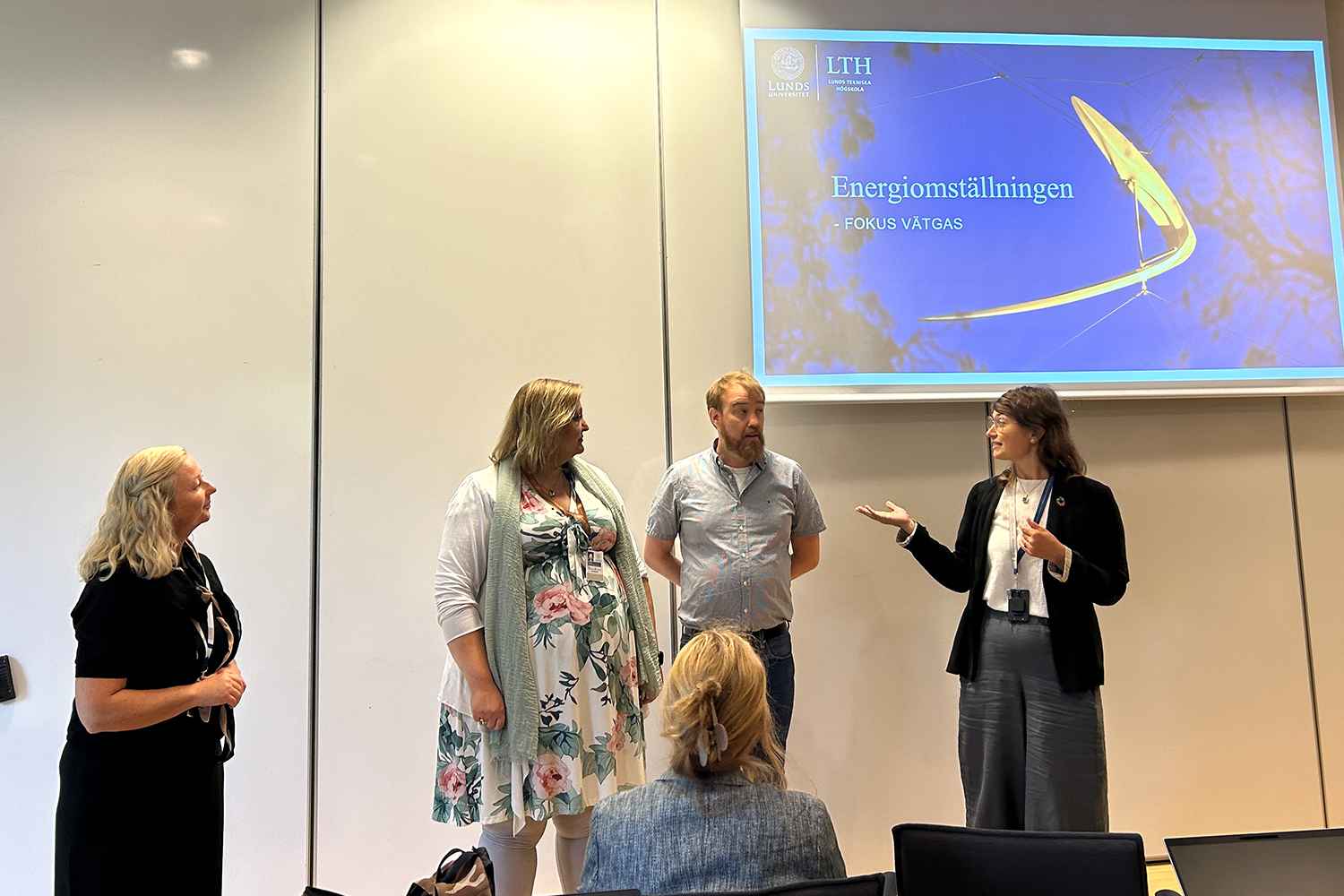How do we get the right skills for hydrogen in Skåne?
At the end of August, Lund University Commissioned Education (LUCE) and researchers from the LTH profile area Energy Transition hosted a charged event. Invited to the day were Trelleborg Municipality, the Swedish Energy Agency and the regional energy companies Trelleborgs Energi AB, Öresundskraft AB and Kraftringen. The event marked the conclusion of the one-year project Kompetensfonden Trelleborg, focusing on hydrogen, and gave the participants a unique opportunity to strengthen their collaboration to drive the energy transition forward.
Cecilia Schubert – Publicerad den 12 September 2024

The project, funded by the Municipality of Trelleborg, has aimed to create a strategic partnership on long-term skills provision between Lund University and the municipality. It is an excellent example of how academia, industry and the public sector can work together to meet the challenges of the future.
During the event, the results of two degree projects from LTH were presented, as well as a needs assessment, carried out by LUCE, which clearly shows the great demand for expertise in the field of hydrogen.
Lack of political will and expertise
Researcher Martin Andersson, active in the Energy Transition profile area and presenter of the theses, reflected on the challenges the project has highlighted:
"If hydrogen is to become a real part of our future energy mix, we need to start training specialists immediately. LTH has a key role to play here, as the skills shortage is already a fact. But with targeted efforts, we can overcome this."
Martin also highlighted the high demand for students who complete their degree programmes:
"Our students are employed before they even start their projects. Competition for skills is huge, and companies often recruit from each other, which does not favour the energy transition in the long run."
Associate Professor Kerstin Sernhed, a driving force behind the project, agreed and emphasised:
"The skills shortage in the energy industry is already significant, but when it comes to hydrogen it is even more acute, as the LUCE mapping clearly shows. In addition, we need public support to scale up hydrogen projects. Infrastructure will be crucial, and here the government must take an active role."
LUCE Project Manager Jessica Hansson, who together with LUCE Business Developer Alexandra Hertz was responsible for the mapping, also emphasised the importance of meeting the emerging skills needs:
"Our study shows that investing in hydrogen creates both opportunities and challenges, especially in terms of skills supply. There is a great need for excellence in areas such as process engineering, operation and maintenance, and electrolyser knowledge."
Key insights from the day:
- Skills shortage: There is a major shortage of specialised skills in hydrogen. More both specialists and generalists with broader competences in energy systems are needed. Flexible training solutions for different needs and target groups are necessary.
- Collaboration is crucial: The discussions during the day clearly showed the importance of continued collaboration between academia, industry and the public sector to find new paths for skills supply and innovation.
- Political will and support: Scaling up hydrogen projects requires strong support from the government, especially in terms of developing the necessary infrastructure.
The event demonstrated the strong commitment to green hydrogen technology in Skåne, but the journey has only just begun. It is now time to invest for the long term and continue to integrate education and research into larger strategic efforts.
